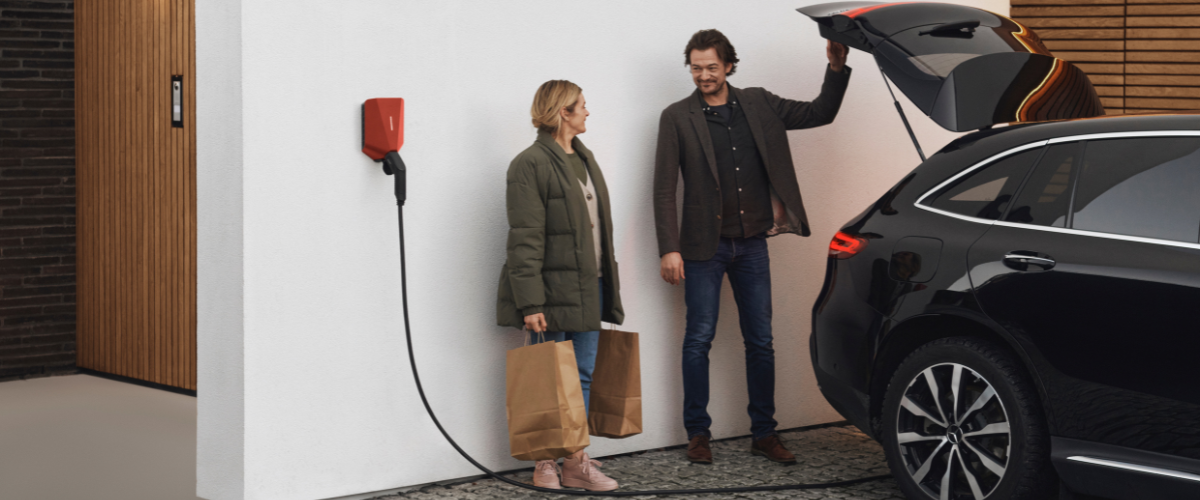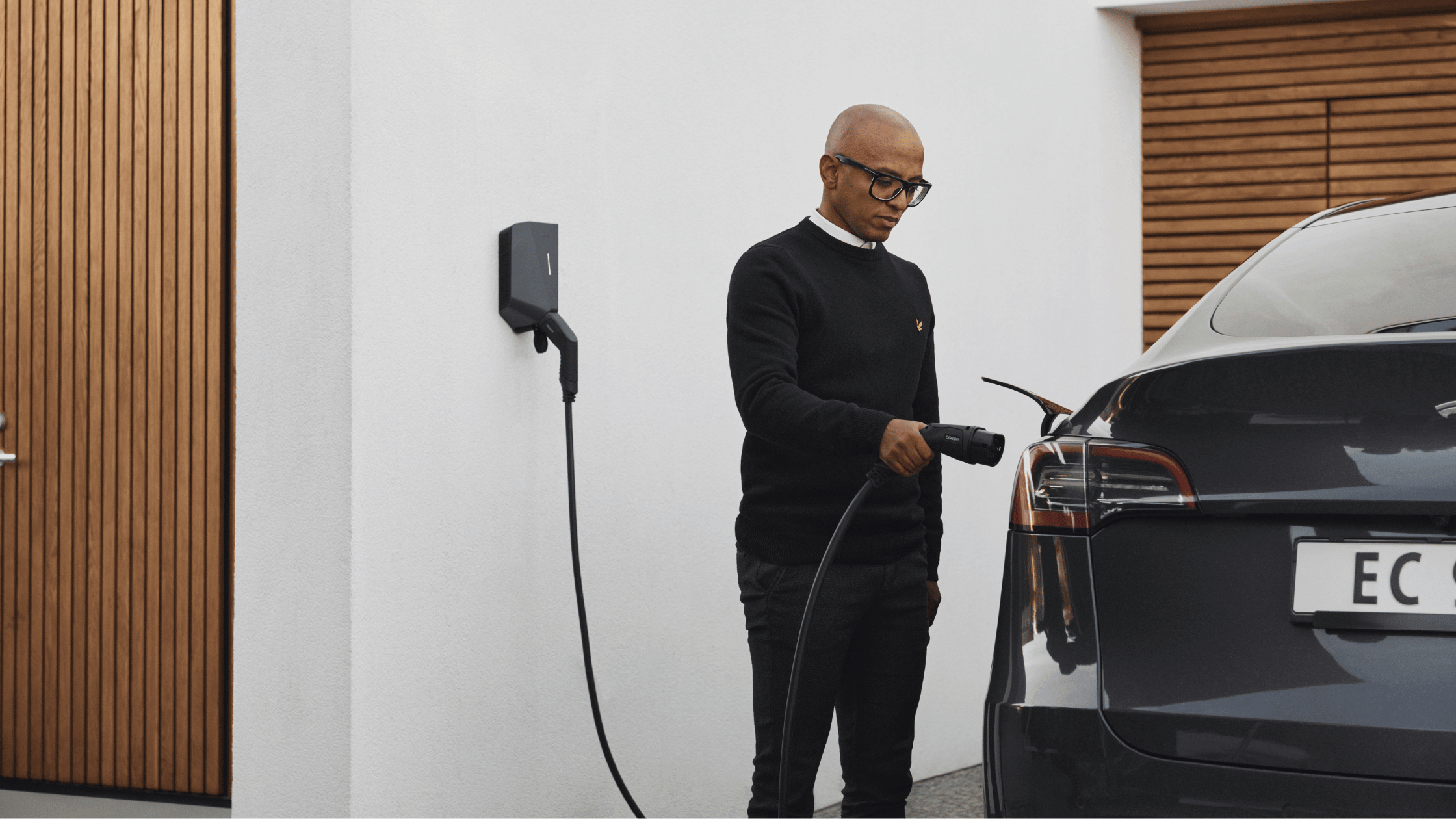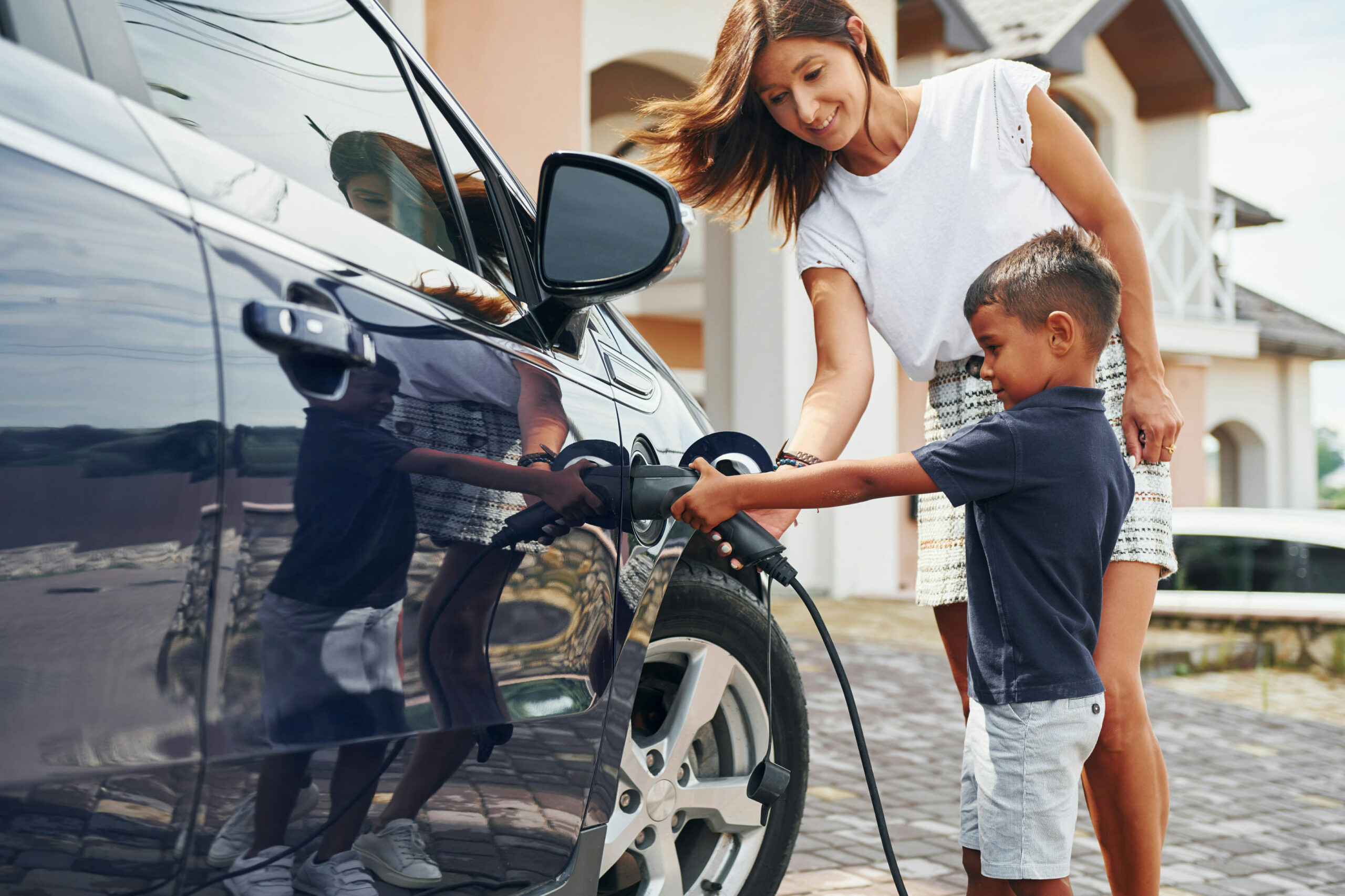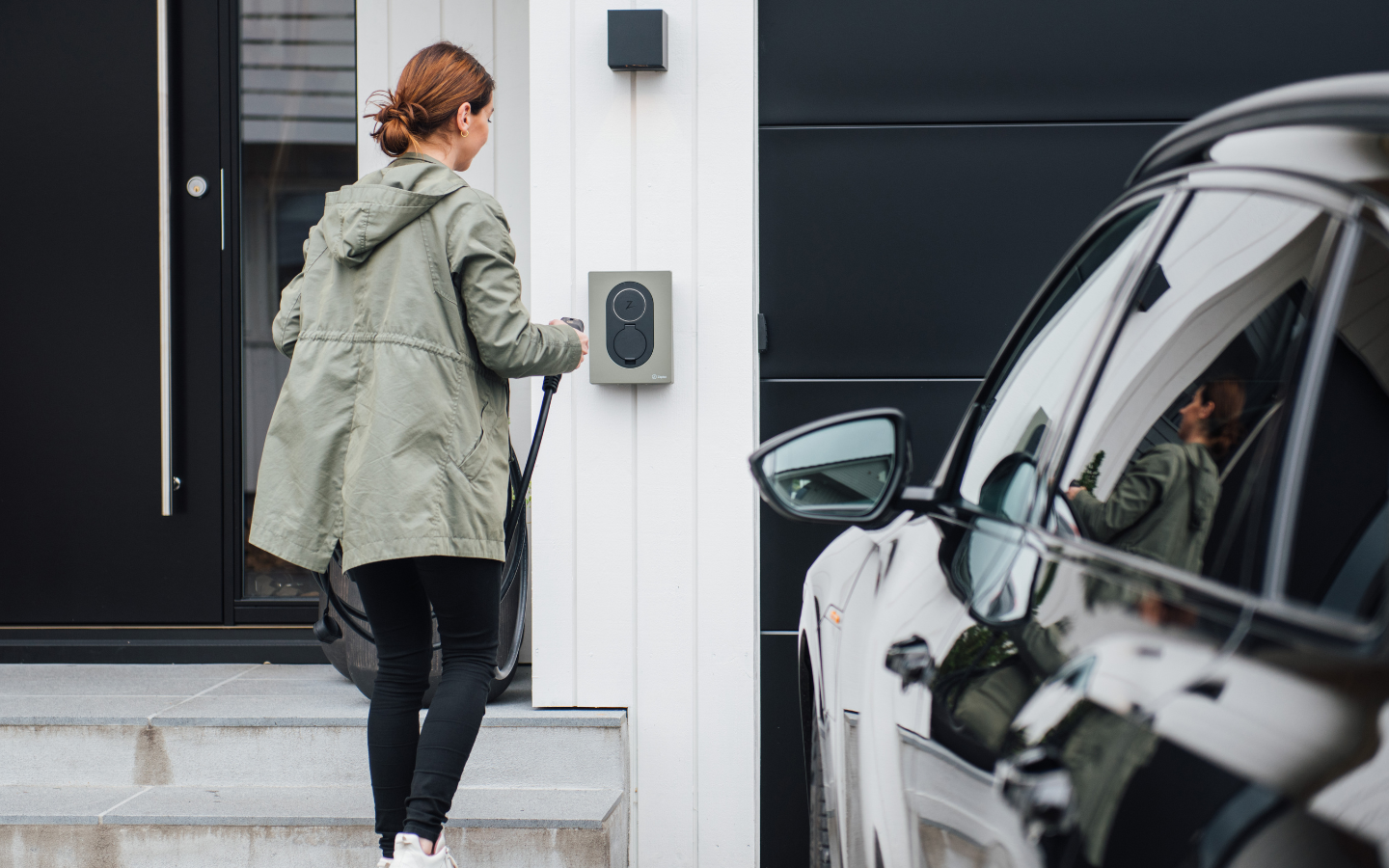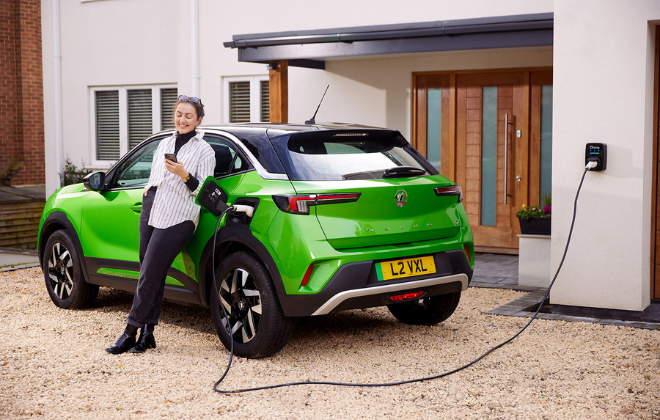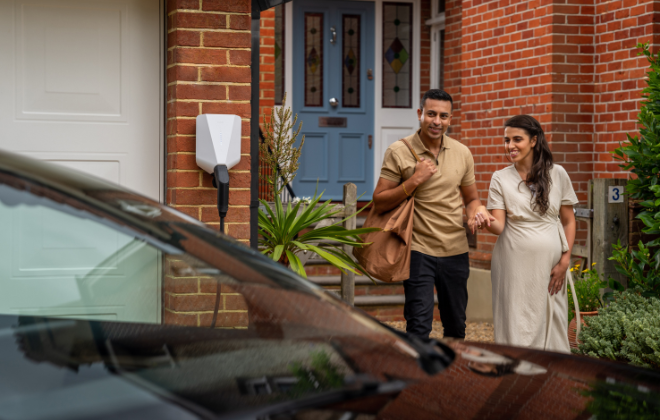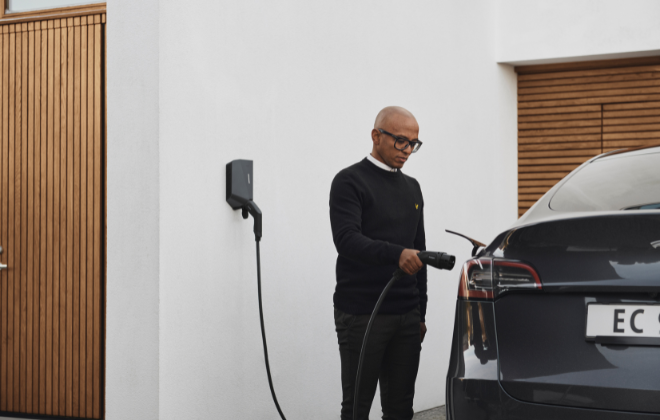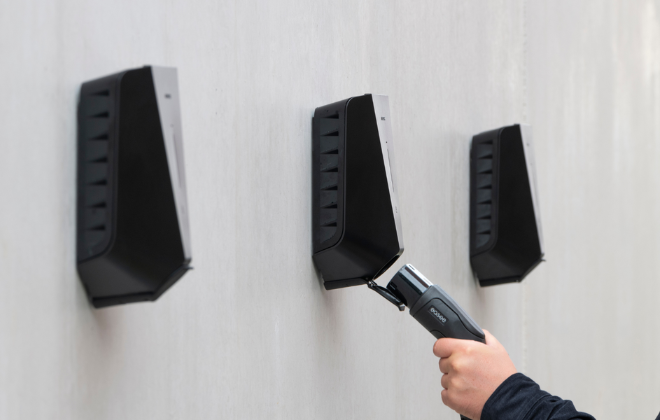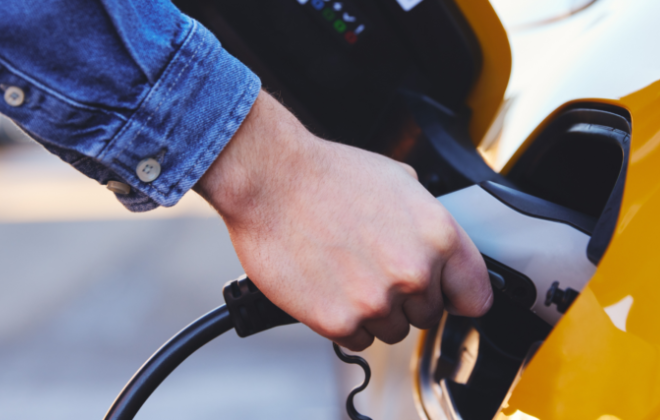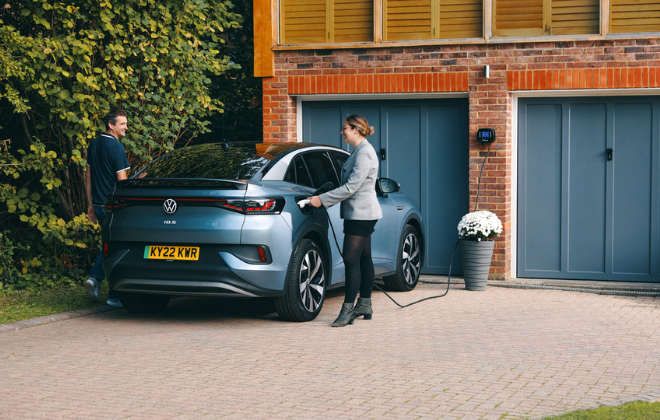
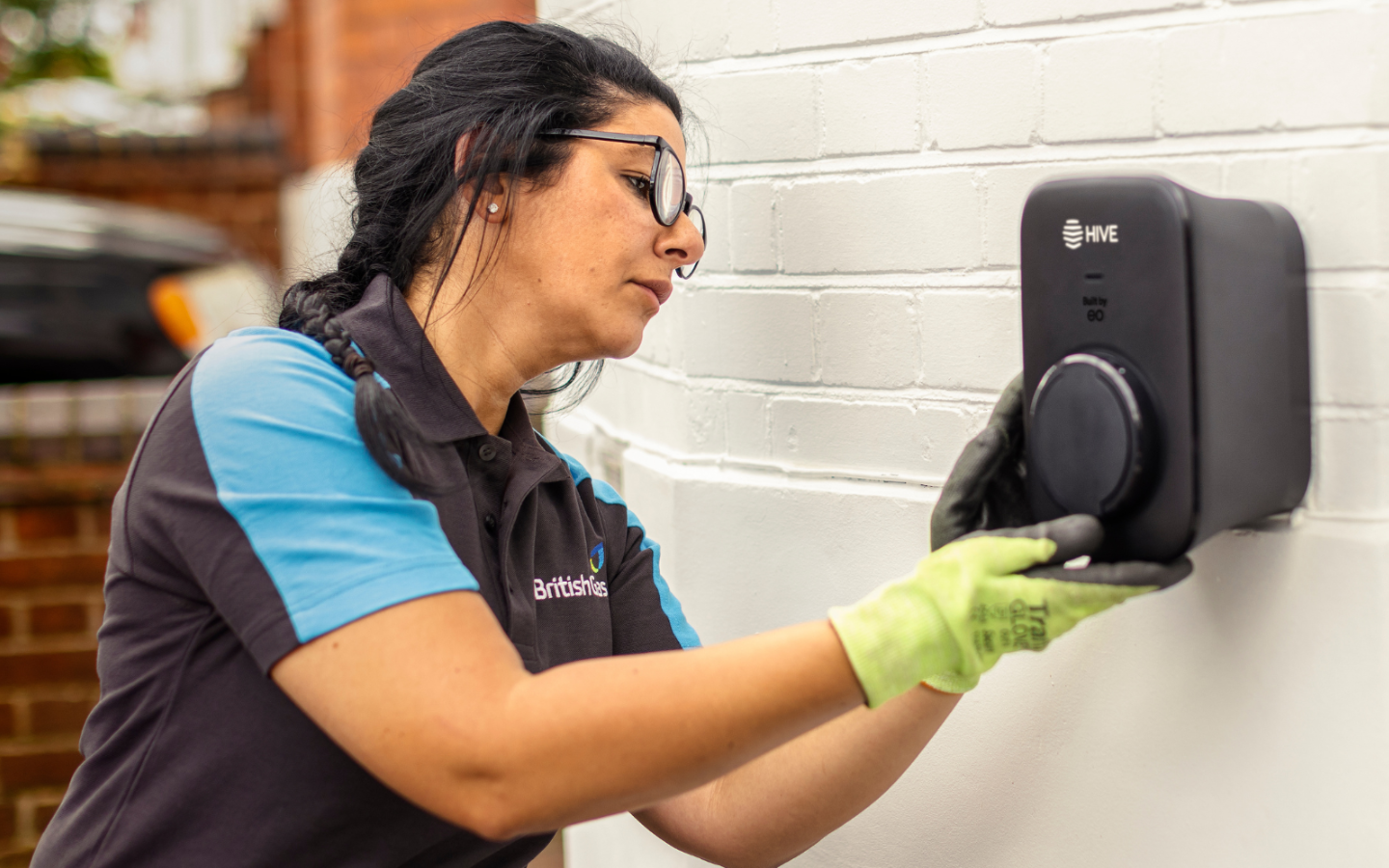
How long does it take to install an EV charger?
How long does it take to install an EV charger?
In essence, the time it takes to physically install one single-phase EV charger typically takes around 2-3 hours to complete (based on a standard home EV charger installation without additional work).
However, the actual length of time will depend upon where your charge point is installed (for example, detached garages will take longer), the number of chargers to be installed, and whether any time-consuming work is required. More materials and labour are needed (such as routing the cabling underground).
Some electric vehicle charger installations may require significantly more work. Examples of these situations include installing the ChargeArm or large commercial installations. The installation timescale for these chargers takes longer because they are more complex and larger.
That said, the timeline for purchasing, planning, and installing an electric car charger is different to the time it takes to actually install the charger. Unlike phone chargers, which you can easily purchase online and have delivered straight to your door to start using from the get-go, home EV chargers require more thought and are significantly more technical than one might originally think.
In fact, EV charger installations can take weeks, if not months, to plan, schedule and handle the necessary requirements and permissions for a safe, legally compliant electric vehicle charger installation.
Today, we will walk you through the steps required to install an EV charger safely and legally on your property.
1. Enquiry and EV charger selection
It’s no secret that home EV chargers provide an abundance of benefits. But, contrary to popular belief, they are not universal and actually come in a variety of shapes, sizes, designs, and speeds—not to mention different smart features.
Some EV chargers can help you save significantly on home charging costs. The neat and discreet Ohme Home Pro, for example, can sync with your energy tariff to charge at the cheapest rates available—saving you up to £400 per year. Its tech is compatible with coveted energy tariffs such as Intelligent Octopus Go and OVO Charge Anytime.
Others, such as the VCHRGD Seven, come with solar integration, meaning as long as you have a solar PV system, you can top-up your EV charge with free solar energy.
Once you’ve enquired with a reputable, experienced EV charger installation company (do not try to install a charger yourself), let them take you through the electric vehicle charger options to find the best charger to suit your needs. Or, read our blog on the best EV chargers 2024.
2. Site survey (online or in person)
Once you’ve enquired about the charger, a site survey is crucial to assess where you meet the installation requirements (such as off-street parking) and whether you would fall into a standard installation or non-standard.
In short, a standard installation price, as the name suggests, includes the installation, the charger itself, labour, and materials. It’s like a package holiday, where everything you need is included. If your installation is non-standard, the cost to install an EV charger will be, as you will unfortunately be, subject to additional costs.
The survey involves evaluating your property’s electrical capacity (power supply), determining the best location for the EV charger, and assessing any additional requirements, such as the cable length (the distance between your meter box and where you want your EV charger) and questions regarding the Wi-Fi connection. The duration of this phase can vary but generally takes a few days to a couple of weeks, depending on the complexity of the installation site. Learn more about the factors to consider in an EV charger installation in our blog.
Usually, this happens via a free online site survey, where we will ask you to take images or videos of the cable route and any water and gas earth bonding. If you are struggling, you can contact the installation company, as they will be able to help you through the process.
In cases where it is difficult to see the property’s layout or where the installations look complex, companies will send an engineer to undertake an in-person site survey. Typically, this will come at a small fee, which will be deducted from the final price if you decide to go ahead with the installation.
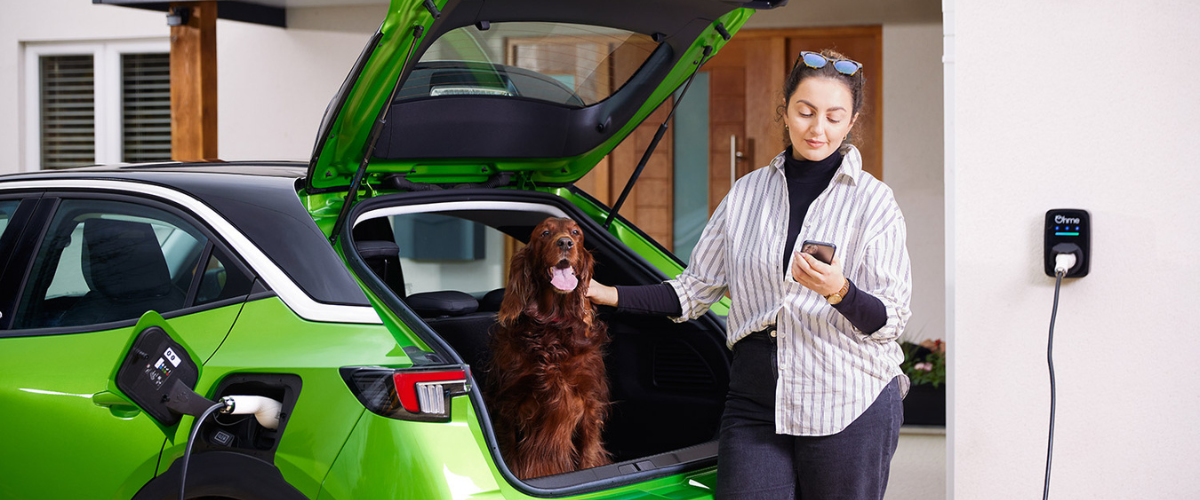
3. Electric vehicle charger payment
Once the best EV charging solution for you has been sorted and the route of the charger has been installed, you will have to make payment for your chosen charger. Because of the complexity of the installation, and the value of the electric vehicle chargers, payment will be required upfront – just like any other high-ticket electrical equipment costs, such as fridges or TVs.
Finance options may be available for you to spread the cost of an EV charger over time.
Our home EV chargers have finance options for you to choose from.
4. Permissions, planning and scheduling of the installation date
Securing the necessary approval from your local Distribution Network Operator (DNO) is a crucial step in the installation process. Truthfully, the timeline for DNO approval can vary significantly based on your location and your local DNO. In some areas and cases, the DNO process is straightforward and quick, while in others, it could take several weeks – or sometimes months.
Additionally, in some cases, your existing electrical infrastructure at home may need a fuse upgrade to accommodate the increased load of an EV charger. Again, the duration of these upgrades can extend the overall installation timeline by a few days to weeks.
Notifying the DNO is mandatory, and installation companies cannot go ahead without approval. Delays waiting for DNO approval are, therefore, not the fault of the installation company.
Other permissions may also be needed, such as landlord permission if you rent or permission to install from your council if you choose the ChargeArm. To find all required permissions, please read our blog on permits and permissions.
Any eligible grant paperwork will also be completed during this time-frame, handled by your chosen installation company. Currently, for residents, only flat owners and renters are eligible for a £350 grant off a home charger. Commercial grants are also available, too. Learn more about the available grants.
Once DNO approval has been given, your chosen installation company will contact you to schedule and book your installation date.
To avoid disappointment, we recommend purchasing your EV charger once you have ordered your electric car, or as soon as you have received it.
Find the full details on DNOs and their involvement in EV charger installations.
5. EV charger installation day
On your EV charger installation day, your qualified electrician or engineer will arrive promptly at the given time and start installing your charger. Make sure to ensure there’s plenty of space for the installer and no objects in their way to make the installation as smooth as possible. A cup of tea would be greatly appreciated by the engineer, too.
Once the installation has been completed and your engineer has tested that your charger works correctly and everything is in place, they will take you through how to use your EV charger and demonstrate how any smart features work. Feel free to ask your engineer any questions you have – EV chargers are new technology, so don’t be afraid to ask any questions.
Remember, at We Power Your Car, we are here for you before, during, and after your installation, so if you think of any questions post-installation, you can contact us at 03333 44 96 99 for support and advice.
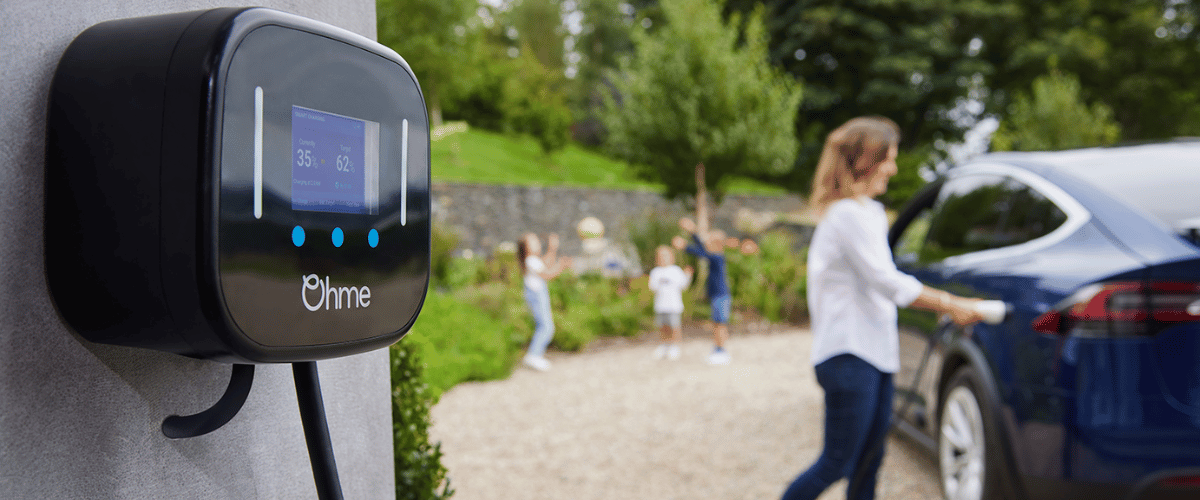
6. Post-installation check-in, EIC certification and compliance certificate
You’re all set to take advantage of cheaper, greener and more convenient electric car charging with your installed home charger, but we will make sure to check in after the installation to make sure everything is working as it should and to receive feedback.
You will also receive an Electric Installation Certificate (EIC) post-installation – this document shows that your charger is compliant with regulations and safety standards. What’s more, you should receive a compliance certificate to show that your chosen EV charger complies with the Smart Charging Points Regulations.
Conclusion
While the timeline for EV charger installation can vary, a general estimate is approximately two to four weeks from the initial assessment to the completion of the installation process for home chargers. However, it’s crucial to note that this timeline is a broad average, and actual duration may vary based on the specific circumstances of your installation. This is especially the case as home EV charging becomes more and more popular. Installation companies become busier and time-frames longer.
To make the process simpler, proactive communication with your chosen installation provider, understanding regulations and requirements, and having your property ready for the site survey can contribute to a smoother and faster installation experience.
Interested in having an EV charger at home?
Electric vehicles (EVs) are already cheaper to run than petrol and diesel vehicles, but, you can save even further by investing in a smart EV charger.
At We Power Your Car, we handle the entire installation process, whether for a home charger, or commercial. From enquiry to post-installation, we manage everything on your behalf. And, we keep you updated every step of the way.
If you are looking to get an EV charger installed, click below to get your free home charger quote. Alternatively, contact us for more information or to ask any questions you may have regarding electric cars and charging.
For more information and our latest updates, follow us on Facebook, Instagram, Twitter, LinkedIn and YouTube.
Related articles_
Stay up to date on the latest from We Power Your Car_
I consent to receive newsletters from We Power Your Car. Please see our Privacy Policy
